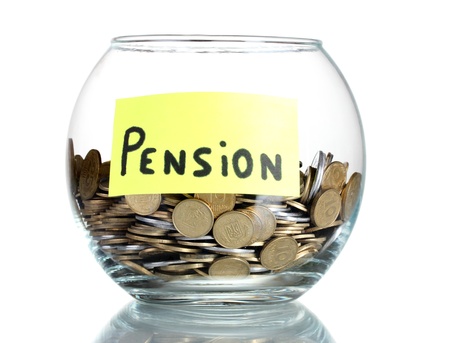雅思课外读物--Is alcohol actually bad for you?
- 2016年04月02日17:27 来源:互联网
- 参与(1) 阅读(6768)
今天给大家带来的雅思阅读素材题目叫“Is alcohol actually bad for you?”。喝酒真的对人体有害吗啊?实验并没有表明喝酒,即使是适量喝酒,对身体能产生任何好处,但坏处却是实实在在的(solid)。我们一起来探个究竟到底怎么回事吧!
Any study suggesting a glass or two a day can keep the doctor away is greeted with disproportionate(一边倒的) enthusiasm by the media and general public. But it is a complex task to determine whether or not alcohol in moderation(适量饮酒)has health benefits.
One of the earlier studies drawing a link between alcohol consumption and health was performed by the late, great Archie Cochrane; the godfather of evidence-based medicine. In 1979, Cochrane and two colleagues tried to work out what exactly was responsible for the differing rates of death from heart diseaseacross 18 developed countries, including the US, UK and Australia. (1979年,Cochrane和两位同事一起,试图弄明白到底是什么因素导致心脏病的不同死亡率,他们的研究横跨18个发达国家,包括美国、英国和澳大利亚。)
Their analysis came up with a clear and significant link between increasing alcohol consumption – specifically of wine – and decreasing rates of is chaemic(缺血的) heart disease (heart disease caused by the build-up of fatty deposits[沉淀物] inside the blood vessels[血管] supplying the heart).
Citing earlier studies that had found an association between alcohol consumption and lower rates of deaths from heart attack, Cochrane and colleagues suggested that the aromatic(芳香烃)and other compounds in alcohol – recently hypothesised to be antioxidants(抗氧化物)such as plant-based polyphenols(多酚类)– were likely responsible for the benefits,rather than the alcohol itself.(之前的研究已经发现,饮酒与更低的心脏病死亡率之间有某种关联,Cochrane和同事们引用这些研究,指出带来这些好处的可能是酒精中的芳香烃及其他化合物——最近有人提出,这些化合物是抗氧化物,类似植物中的多酚类——,而不是酒精本身。)In the spirit of evidence-based medicine,they called for an experimental approach to the question.
Plying(提供) experimental subjects with alcohol, while amusing, is unlikely to reveal the kind of chronic disease benefits that alcohol is speculated(假定) to deliver. So instead, much of the research around alcohol and its health costs and benefits has been in the form of long-term,population-based studies.
In 1986,researchers surveyed a group of more than 50,000 male doctors in the US about their drinking and eating habits, their medical history and state of health over two years. They found that the more alcohol the doctors reported drinking, the lower their chance of developing coronary arterydisease(冠心病), despite their dietary habits.
Another large study published in 2000, also in male doctors, found a ‘U’ shaped relationship between moderate alcohol consumption and – in this case – death, rather than coronary artery disease. Subjects who drank one standard drink a day were less likely to die within the 5.5-year-long study than those who drank less than one a week, or those who drank more than one a day.(在这个跨度5.5年的研究中,每天喝一定量酒精的受试者,比起那些一周都喝不到这个量或者每天都超过这个量的相比,死亡的可能性更小些。)
This suggested there was a ‘sweet spot’ for alcohol consumption; a healthy middleground between too little or too much, where the benefit for cardiovascular(心血管的)health balanced the risk of death from all causes.(这表明喝酒有个“甜区”;一个居于“太少”和“太多”之间的中间位置,这个位置给心血管健康带来的好处降低了各种死亡的风险。)
But was the alcohol itself providing the benefits, or is it just a marker for other healthy behaviours? Are people who drink in moderation also the kind of people who exercise regularly, eat a balanced diet, and generally look after themselves?
In 2005, yet another study in medical professionals – this time 32,000 women and 18,000 men– attempted to answer this question by looking at how their drinking habits affected not only their risk of heart attack, but also their physiology(生理;生理机能).
The people who drank one to two glasses of alcohol, three to four times a week, had a lower risk of heart attack, which the researchers hypothesised could be due to beneficial effects of alcohol on HDLcholesterol(胆固醇)– the so-called ‘good’ cholesterol – as well as haemoglobin(血色素)A1c(a marker of diabetes risk) and fibrinogen(血纤维蛋白原), an agent that helps the blood to clot.These three factors all play an important role in ‘metabolic syndrome’(代谢综合症); the cluster of abnormalities that often heralds(预告……的到来)cardiovascular disease and diabetes. Other studies have found hints that alcohol might alter the balance of these factors for the better, which pointed to a possible mechanism(机理;机制) by which alcohol in moderation could improve health.
Other studies have replicated(复制)this sweet-spot effect of alcohol for is chaemic stroke (strokes caused by a blood clot in the brain) and death in general. But before you dive out and prescribe yourself a couple of bottles a week – for your health, of course–you might want to read on.
Do abstainers(不饮酒的人)actually have a higher risk of death than people who have one or two alcoholic drinks a day? It isn’t as straightforward as it looks.
In 2006, a team of researchers took a closer look at how these studies were designed.Their meta-analysis(元分析,即对别人的分析进行再分析) showed a major flaw in the way drinkers –or rather abstainers – were classified: the abstainers in many of these studies included people who had cut back or stopped drinking because of ill health or old age. This could potentially make non-drinkers look like a far less healthy group than the general population.
Importantly,the studies without this misclassification didn’t find a reduction in heart disease or death among moderate drinkers.
Other researchers have now explored this ‘misclassification hypothesis’ more closely,including a huge UK-based population study published this year.
It showed that when you simply compare alcohol consumption and health outcomes, you find a clear beneficial effect of moderate alcohol consumption. But if you take former drinkers out of the abstainers group, then the benefits don’t look so rosy – in fact, they all but disappear.



































